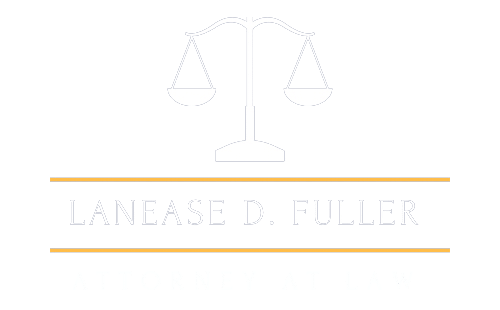Are you an injury victim that is currently searching for an experienced Dallas personal injury lawyer to take on your case? Attorney Lanease Fuller can help. She has nearly thirty years of experience helping her clients recover compensation for a wide range of injuries including but not limited to: car accidents, trucking accidents, motor vehicle accidents, malpractice cases, and much more.
Not only is Attorney Fuller one of the top personal injury attorneys in Dallas, Texas, she also is a trial lawyer. This means if you are unable to recover the compensation you need for your medical care, lost wages, and pain and suffering, she won’t be afraid to take your case to trial.
Do I Have a Personal Injury Case?
If you have been injured in an automotive accident, slip and fall or workplace accident, your immediate reaction may be to sue the party responsible for your injuries. However, not all cases warrant an attorney’s involvement. Furthermore, attorneys may refuse to take a case if it is not worth the attorney’s time or experience.
Elements for a Personal Injury Case
Most personal injury claims require the showing of four basic elements:
- 1) the defendant owed a duty to the victim;
- 2) the defendant breached that duty;
- 3) the breach proximately and legally caused the victim’s injuries;
- 4) the victim was damaged in some way due to this breach.
Even if three out of the four elements are particularly strong, a victim should not recover compensation for the accident if one of the elements is missing. Each element must generally be proven by a preponderance of the evidence. These elements are discussed in more detail below.
- Duty
A duty may arise in a variety of situations. For example, a teacher may have a legal duty to supervise children in her care. An employer may have a duty to maintain a safe workplace. A business owner may have a duty to inspect the premises for any unknown dangers. In order for a victim to recover, he or she must show that the defendant had a duty to the victim. If there is no duty, there is no case.
- Breach
Simply because an accident occurs does not mean that someone acted in a negligent manner. A business owner may have taken every precaution to ensure that customers did not fall and a customer may have still fallen. There must be some type of breach of the duty that was owed to the victim for recovery to ensue.
- Causation
The defendant’s breach must have caused the victim’s injury; something else cannot have been the primary factor in the injury. In some cases, the breach is too far removed from the timing and circumstances surrounding the victim’s injuries for the defendant to be found to have caused the accident.
- Damages
The defendant must have suffered harm in some manner. For example, he or she may have been physically injured and incurred medical expenses. His or her property may have been damaged. The victim might have suffered emotional trauma because of the accident which required treatment.
Liability in a Personal Injury Case
All of these elements together basically ask the question of, “Was the defendant liable for the accident?” In some situations, there is clear-cut liability. The defendant was responsible for keeping the victim safe and acted in an unsafe manner that can be easily proven. However, in other situations, liability may not be as clear. The victim may be blamed for his or her own actions that led to the accident. A third party may have shared the blame. Before an attorney agrees to take the case, he or she may want to ensure that liability can be established on the part of the defendant.
Level of Damages in a Personal Injury Case
Even if there is clear-cut liability in the case, an attorney may refuse to get involved in the case if there are not enough damages. For example, some attorneys may refuse to take the case if the victim should be awarded less than $5,000 in damages. A conscientious attorney will conduct a cost-benefit analysis to determine whether it is worth his or her time to take the case. If an attorney takes a case that yields a $5,000 judgment or settlement and takes a third as his or her fee, the attorney would receive just over $1,660. If the case took several hours of his or her time to prepare, this low figure may simply not be worth the attorney’s time. Additionally, if an attorney is handling your case, he or she may not be available to handle someone else’s case that may be more lucrative.
Evidence in a Personal Injury Case
Another factor that an experienced personal injury lawyer will consider is whether there is evidence available to help support your version of the event. In many cases, this is not known until the discovery process. However, an attorney may be able to infer that certain evidence may be available based on the limited information that is available at the early stages of your legal representation. For example, he or she may assume that videotape is available if the accident occurred in a national retail chain. Additionally, he or she may assume that witnesses may be available if a police report indicated as such. If you have suffered physical injuries, your medical records and bills may be used to establish damages in your case.
Best Personal Injury Lawyer in Dallas TX
Attorney Fuller is a seasoned attorney with nearly three decades of experience representing a wide range of clients. This includes individuals who have suffered an injury due to another’s actions, individuals facing criminal charges, those who have been arrested for DWI, individuals who have found themselves in a civil litigation dispute, and those looking for legal guidance in business.
After filling out a client intake form, Attorney Lanease D. Fuller will take appropriate action in your case to help you get the results you are looking for. This includes but not limited to gathering evidence, going to trial, and earning a settlement that is appropriate for your specific situation. Reach out to us today to take the first step towards settling your case.
LANEASE D. FULLER LAW
4615 S. Frwy St. 820
Houston, TX 77051
713-439-7400
Google Listing


